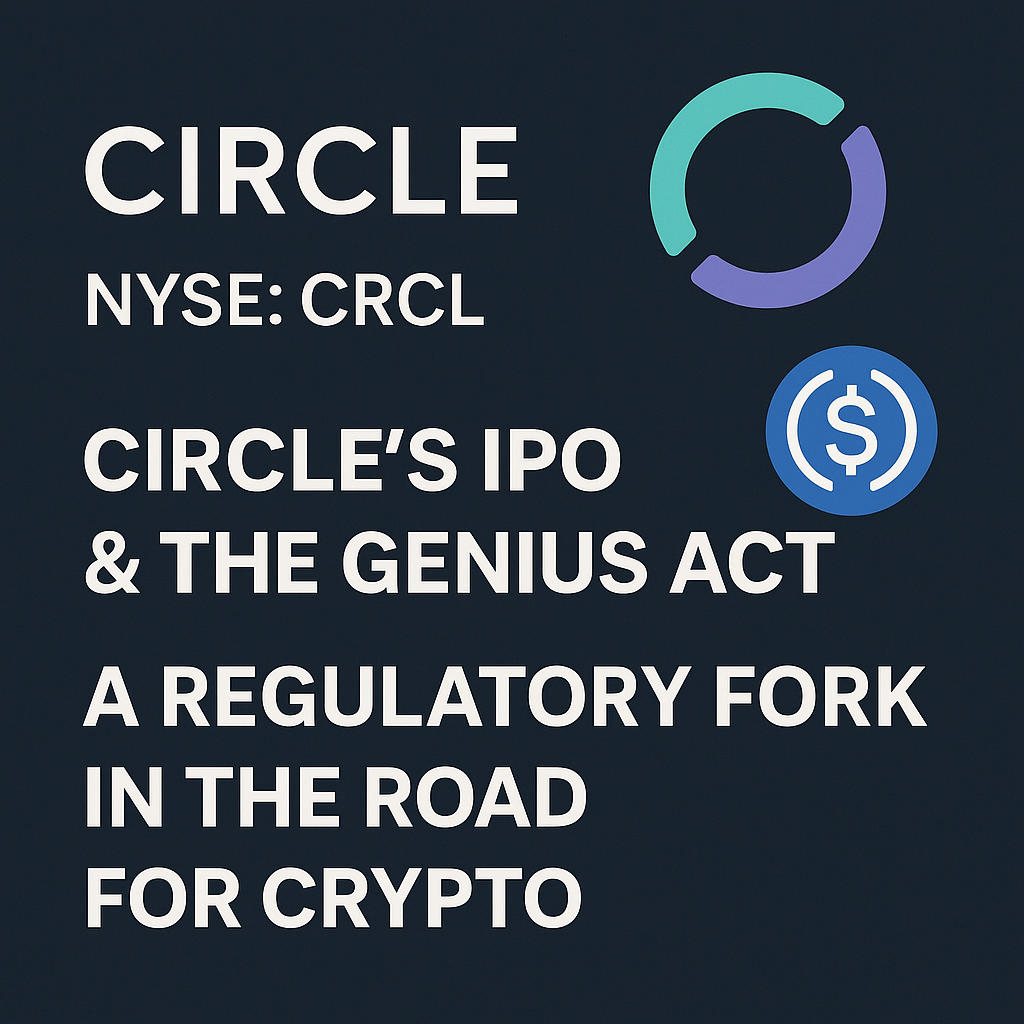The crypto world just crossed another threshold. On June 5, Circle—the issuer behind USDC, the world’s second-largest stablecoin—officially went public. The long-anticipated IPO marks a monumental shift, not just for Circle, but for the entire crypto ecosystem.
At nearly the same time, lawmakers pushed forward the GENIUS Act (Guarding Effective National Investment and Understanding of Stablecoins), aiming to establish clear, enforceable rules for the stablecoin industry.
Together, these two moves represent a paradoxical moment: the beginning of crypto’s mainstream acceptance—or its slow domestication.
Circle’s Wall Street Debut: Stable, Public, and Scrutinized
Circle’s IPO was no spontaneous event. The company has long signaled its intention to go public, first attempting a SPAC merger in 2021 that eventually fell through. This time, it made it official: June 5, 2025, marked the first day Circle shares hit the public markets.
This is more than a financial milestone—it’s a philosophical one. A private company, rooted in a movement that once promised decentralization and disintermediation, is now listed on the world’s most centralized exchange platform.
Optimists will say this proves crypto is maturing. Circle is showing it can play by traditional finance’s rules while offering something uniquely valuable: a stable, liquid, blockchain-based version of the U.S. dollar. With a public balance sheet and real-time reserve disclosures, Circle is betting on transparency.
But critics raise another point: Going public opens the door to regulation, censorship, and institutional influence. Shareholders don’t just want innovation—they want predictability and profit. And governments love when money becomes traceable and taxable.
The GENIUS Act: Stability or Strangulation?
The GENIUS Act is Congress’s latest attempt to wrangle stablecoins into a legal framework. At its core, the act does three things:
1. Requires 1:1 reserves for all fiat-backed stablecoins
2. Mandates audits and registration with federal regulators
3. Encourages chartered institutions (like banks) to issue stablecoins
Supporters say this brings much-needed clarity. In a post-FTX world, stablecoins need strong guardrails to ensure solvency and security. With clear rules, institutions can confidently enter the space without fearing regulatory retaliation.
But let’s not be naïve. The GENIUS Act doesn’t just regulate—it chooses winners. It’s far easier for billion-dollar firms like Circle to comply with audits, registrations, and reserve mandates than for startups, DAOs, or overseas projects.
And it effectively mandates reliance on the U.S. financial system. If reserves must be held in cash or short-term Treasuries, then even the most “decentralized” dollar becomes a tool of state monetary policy.
What This Means for Crypto
Taken together, Circle’s IPO and the GENIUS Act signal one thing: the lines between crypto and traditional finance are blurring—fast. But is this convergence cause for celebration or concern?
The Optimistic Take:
Regulatory clarity could accelerate adoption, inviting more users, businesses, and investors into the space.
USDC could become the backbone of global remittances, DeFi, and tokenized assets.
Public accountability from companies like Circle could raise the bar for trust and transparency in crypto.
The Skeptical Take:
Regulation favors the already powerful, potentially killing grassroots projects that made crypto revolutionary in the first place.
Stablecoins may become state-compliant surveillance tools, indistinguishable from CBDCs.
Crypto could be sanitized into just another branch of the banking system, losing its soul along the way.
Final Thought
Crypto has always been a battleground between two visions: one where technology frees the individual, and another where it simply reinforces the state in digital form. Circle’s IPO and the GENIUS Act are milestones in that struggle.
Whether we’re witnessing the rise of a freer financial system—or the repackaging of fiat in crypto clothing—will depend on how the community responds. The tools are neutral. The outcomes are not.
Choose wisely.




